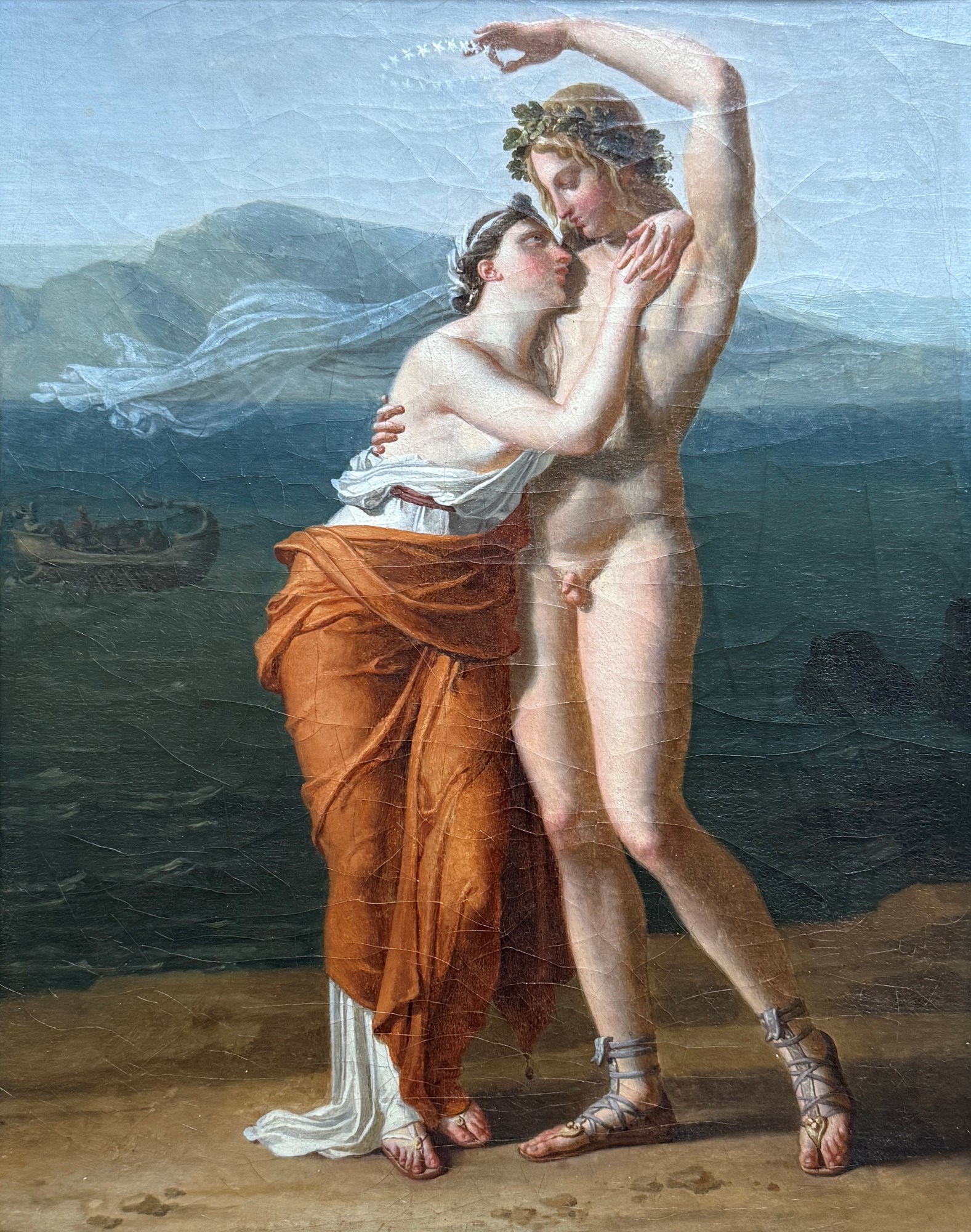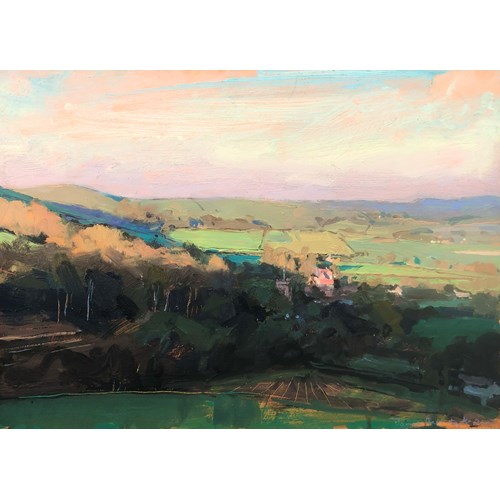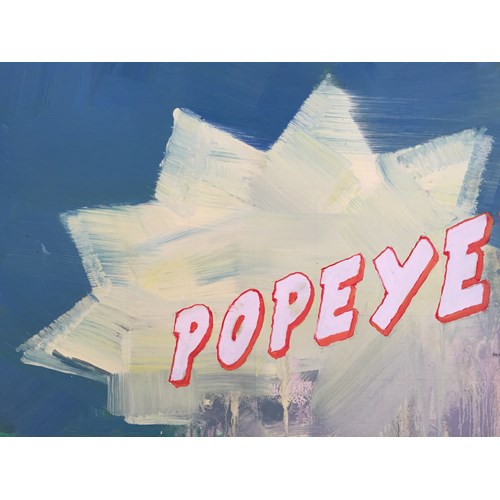Marketplace
Bacchus and Ariadne
Jean-Pierre Granger
Bacchus and Ariadne
Epoque 1750-1850, 19th century
Medium Oil on canvas, With fine Charles X frame
Dimension 36.4 x 28.4 cm (14³/₈ x 11¹/₈ inches)
In this lovely painting by a neoclassical pupil of David, Bacchus has come to the rescue of Ariadne on the island of Naxos, where she had been abandoned by Theseus. Ariadne’s crown has already turned into a constellation of stars and Bacchus is about to fling it into the heavens, while his retinue await out at sea beyond. The sculptural handling of the figures and slightly stylized faces may seem affected to modern tastes, but would have been the height of fashion in the period.
The subject of this well-preserved and very finely executed picture fits in well with others by Granger in French museums today – Titus reçoit les hommages du people de la Campanie (Amiens), Pelée & Andromaque (Clermont-Ferrand) and Homer and the shepherd Glaucus (Dijon), and, most notably, Antiochus renvoie le fils de Scipion à son père (Paris, Ecole nationale supérieure des Beaux-Arts), for which Granger won the Prix de Rome in 1800. Together with Ingres, he left for Rome in 1805 and during his five-year stay worked for Lucien Bonaparte, drawing his collection of antiquities. In 1812 he returned to Paris and exhibited at the salon every year until his death, winning medals in 1812, 1817 and 1820.
The subject of this well-preserved and very finely executed picture fits in well with others by Granger in French museums today – Titus reçoit les hommages du people de la Campanie (Amiens), Pelée & Andromaque (Clermont-Ferrand) and Homer and the shepherd Glaucus (Dijon), and, most notably, Antiochus renvoie le fils de Scipion à son père (Paris, Ecole nationale supérieure des Beaux-Arts), for which Granger won the Prix de Rome in 1800. Together with Ingres, he left for Rome in 1805 and during his five-year stay worked for Lucien Bonaparte, drawing his collection of antiquities. In 1812 he returned to Paris and exhibited at the salon every year until his death, winning medals in 1812, 1817 and 1820.
Epoque: 1750-1850, 19th century
Medium: Oil on canvas, With fine Charles X frame
Dimension: 36.4 x 28.4 cm (14³/₈ x 11¹/₈ inches)
Plus d'œuvres d'art de la Galerie









